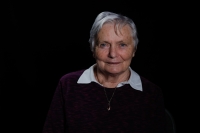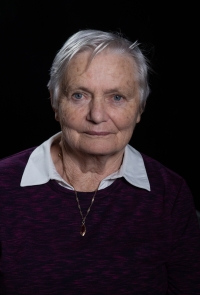For a long time there were national disputes in Rudolfov
Stáhnout obrázek
Libuše Jahodová, née Vronková, was born on 19 November 1941 in Orlová, Silesia. After World War II, her parents decided to move to the borderlands, where they had the chance to manage a general store and own their own home. In October 1945 the whole family moved to Rudolfov, near Liberec. Although there were national disputes in the village for a long time, the village had a very active social and cultural life. In 1947, the witness also started attending the local municipal school. Five years later, she entered the third eight-year school in Liberec, and because she already enjoyed cooking and baking at that time, she later began to train as a cook. After her apprenticeship in 1957, she worked briefly at the Textile Combine near Rudolfov as a weaver, got married and went on maternity leave. After her maternity leave, she found a job as a cook at a boarding school and worked briefly at the Recreational Centre for Promotional Design in Prague, based in Rudolfov. In 1991, together with her second husband, she opened a cafeteria and later a renowned bakery, which she ran until 2005, when she retired. At the time of filming (2024) she lived in Rudolfov.

